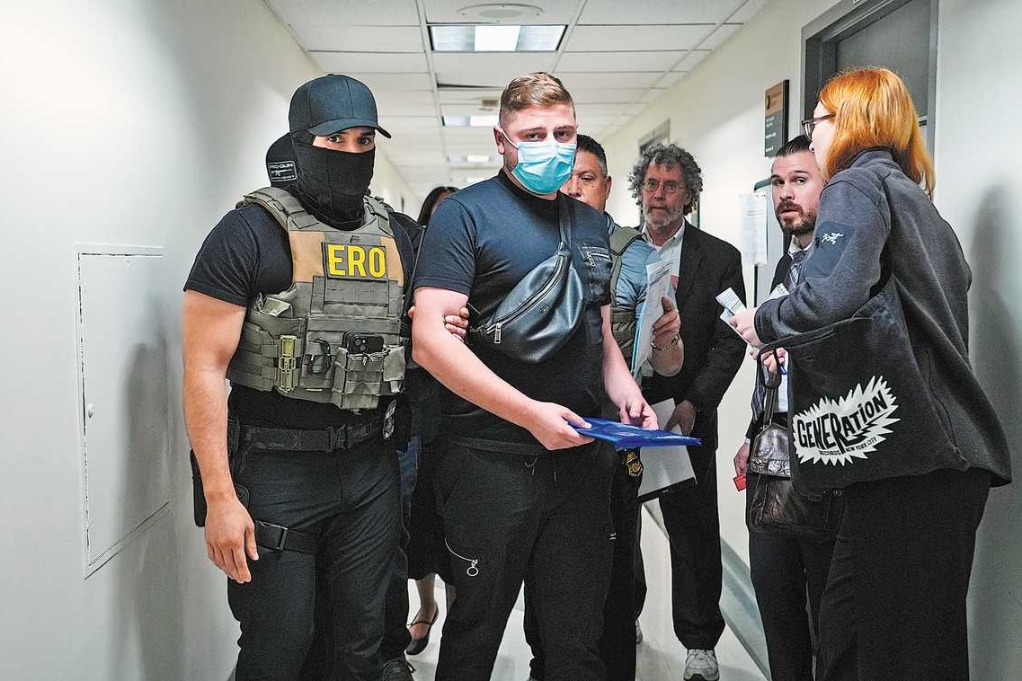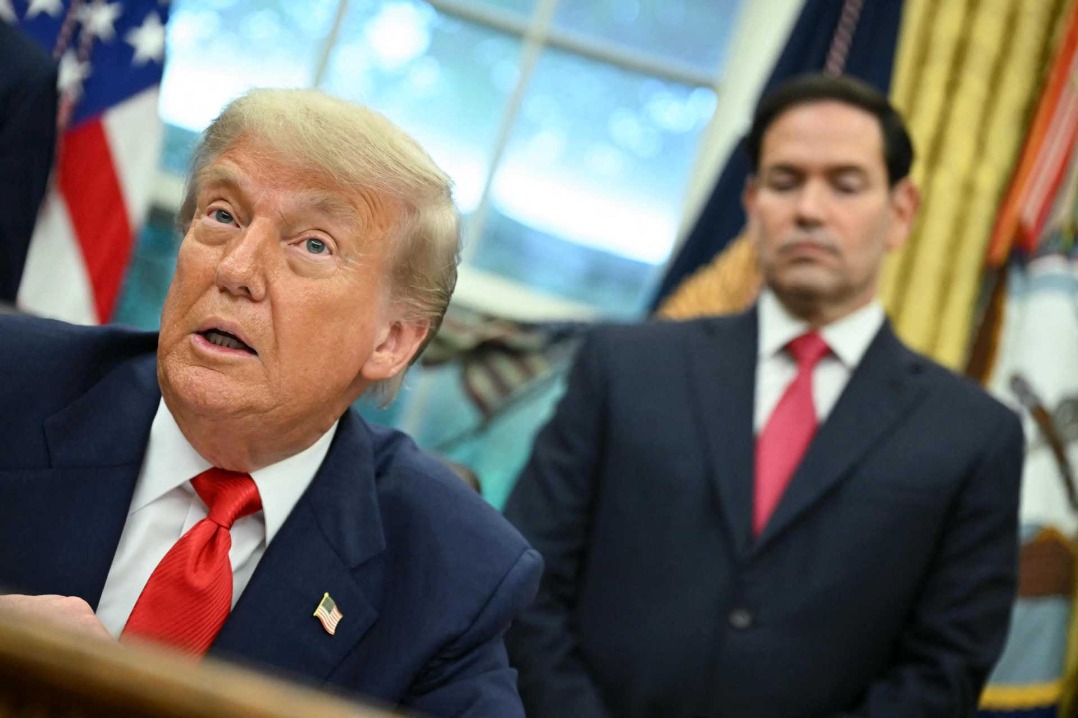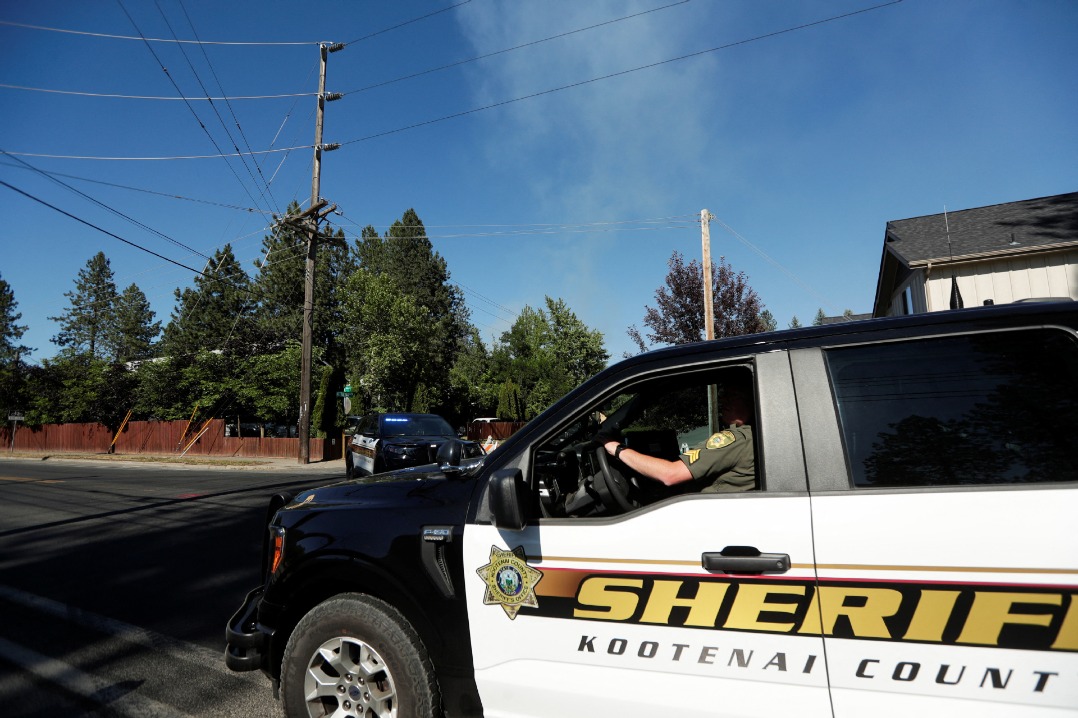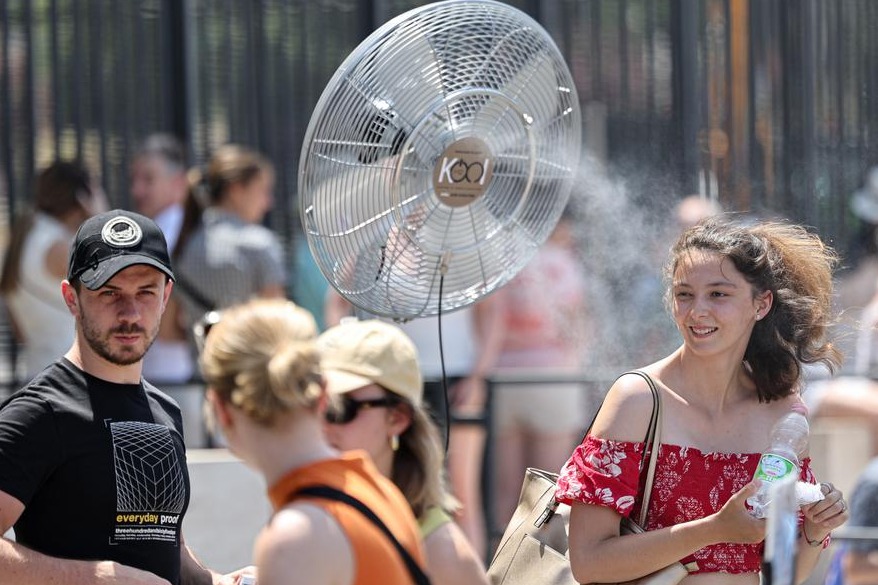Ukraine's F-16 pilot killed in air attack, authorities say


KYIV/MOSCOW — A Ukrainian F-16 fighter pilot died in a crash during a Russian air attack that involved hundreds of drones, cruise and ballistic missiles, authorities said on Sunday, as Moscow intensified nighttime air barrages in the conflict.
The Ukrainian military said that in total, Russia launched 477 drones and 60 missiles of various types across Ukraine overnight. Ukrainian forces destroyed 211 of the drones and 38 missiles, it said, while 225 more drones were either lost due to electronic warfare or were decoys that carried no explosives.
The attack was "the most massive airstrike" on the country since the beginning of Russia's special military operation in February 2022, taking into account both drones and various types of missiles, Yuriy Ihnat, head of communications for Ukraine's air force, told The Associated Press. The attack targeted several regions, including western Ukraine.
Ukraine's President Volodymyr Zelensky praised the pilot, Maksym Ustymenko, and bestowed upon him posthumously the title of "Hero of Ukraine", the country's highest decoration.
Ukraine has now lost three F-16s since it began operating the US-made jets last year. Kyiv has not revealed the size of its F-16 fleet, but they have become a central and heavily used part of Ukraine's defenses.
On Monday, Russia's defense ministry said its air defense systems destroyed 16 Ukrainian drones overnight. Ten of the aerial weapons were downed over the Kursk region bordering Ukraine and five over the Sea of Azov that bounds Russia to its east, the ministry said on the Telegram messaging app.
There were no immediate reports of damage.
Zelensky called for more support from Washington and Western allies to bolster Ukraine's air defenses after the attack.
Ukraine says recent attacks highlight the need for further support from Washington, while US President Donald Trump has not committed to new military aid for Ukraine.
Trump said he was considering a Ukrainian request for more Patriot missile systems after he met Zelensky at a NATO summit last Wednesday.
German Foreign Minister Johann Wadephul has arrived in Kyiv to discuss support for Ukraine, the foreign ministry said on Monday.
"We will continue to stand firmly by Ukraine's side so that it can continue to defend itself successfully — with modern air defense and other weapons, with humanitarian and economic aid," Wadephul said in a statement.
Meanwhile, in Moscow, Kremlin spokesman Dmitry Peskov said in televised remarks on Sunday that the pace of talks to resolve the conflict in Ukraine depends on Kyiv's position, the effectiveness of US mediation, and the situation on the ground.
Trump, who has pushed both sides toward ceasefire talks since his January inauguration, said on Friday he thinks "something will happen" about a settlement of the fighting.
A lot depends on the position of Kyiv, Peskov told Belarus 1 TV, the main state television channel in Russia's neighboring country.
"It depends on how effectively Washington's mediating efforts continue," he said, adding the situation on the ground was another factor that could not be ignored.
Peskov did not elaborate on what Moscow expects from Washington or Kyiv.
While no date has been set for the next round of talks, Peskov said Russia hoped dates would become clear "in the near future".
In another move, Zelensky said on Sunday he had signed a decree to pull Ukraine out of the Ottawa Convention banning the production and use of anti-personnel mines as a necessary step in view of Russian tactics in their conflict.
Ukraine ratified the convention in 2005.
Zelensky said in his nightly video address that Russia had never been a party to the convention "and is using anti-personnel mines with utmost cynicism" along with other weapons, including ballistic missiles.
AGENCIES VIA XINHUA

































